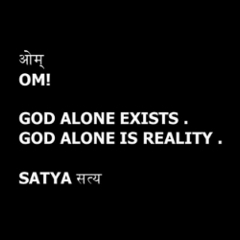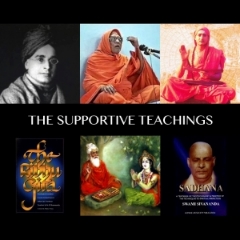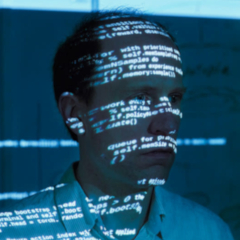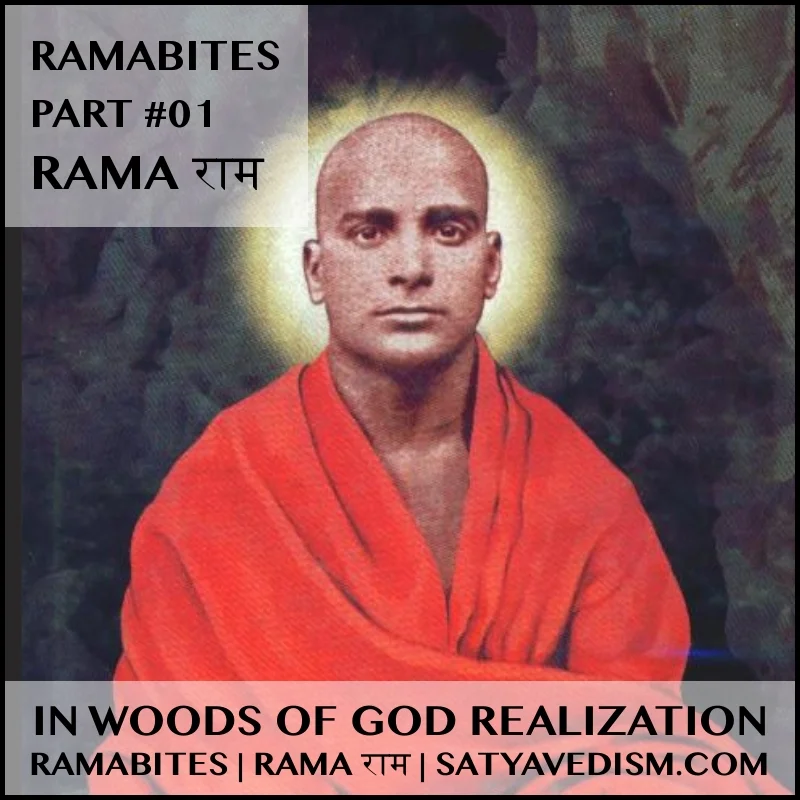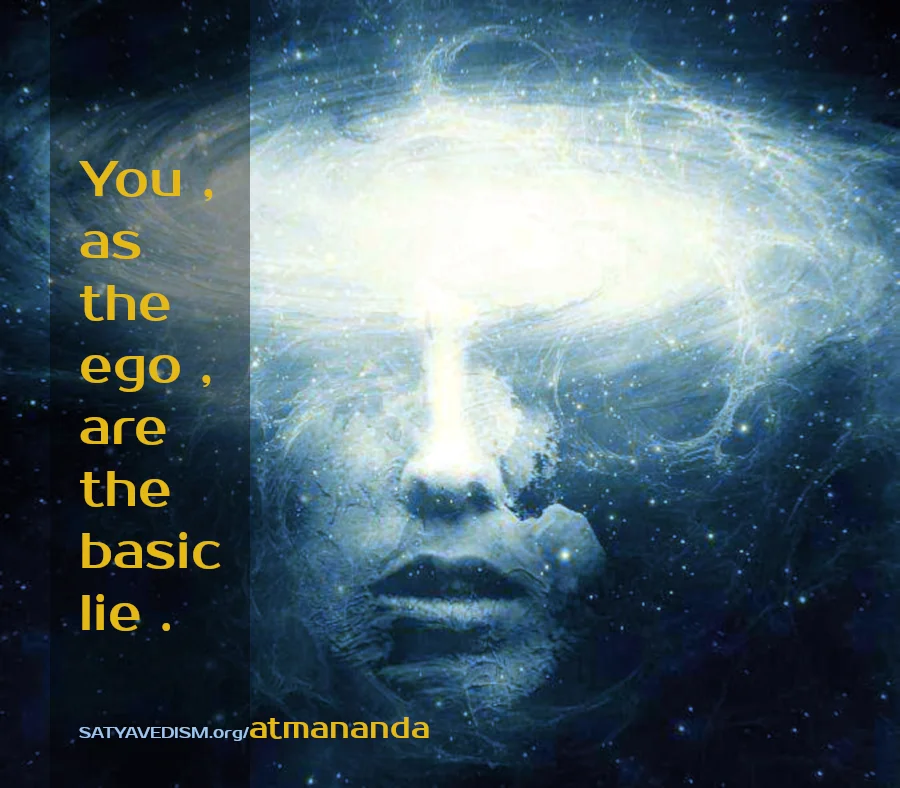SCP | GEORGE WILHELM FRIEDRICH HEGEL
| | homeSTUDIES IN COMPARATIVE PHILOSOPHY
|| GEORGE WILHELM FRIEDRICH HEGEL ||
Hegel takes the philosophy of Kant to its fullest implications and gives us the grandest metaphysics that ever appeared on Western soil . Reason or Spirit becomes in Hegel the be-all and end-all of philosophy . The logical categories become the framework of reality itself . The logic of the mind is the same as the metaphysics of reality .
The real is the rational and the rational is the real . Mind and Nature are not two distinct realms but phases of the evolution of the Absolute which manifests itself everywhere in the universe , in matter and mind , in the individual and society , in history , science , art , religion and philosophy , all at once . The Absolute is the Reality . Its essence is Reason . The universe is conceived as a logical or rational system , a process of the workings of the Absolute Reason . The Reason is the supreme . Everything is an embodiment of Reason .
There is the Reason exhibited in every action , every movement , every thought ; the life of the universe becomes the more rational , the more it unfolds in itself the Absolute Reason . In Logic , Nature and Spirit can be discovered the three stages of the evolution of the Absolute towards the realisation of Self-consciousness . The Absolute Spirit is the goal or the consummation of the activity of the Reason . All the parts of the universe are organically determined by the purpose of the whole which is the Absolute and which is logically prior to all the parts . No part has meaning or reality apart from its organic relation to the whole . Hegel's system is the famous logical or absolute idealism .
Kant made a metaphysics of reality an impossibility . Hegel makes it supreme above all things . For Hegel , to know the Reason is to know Reality . The laws of Reason are the laws of Reality . Hegel's Reason is in a process of evolution . Every higher stage in this evolution includes and transcends the lower , and thus becomes the purpose , intention , meaning and truth of the lower . The higher is the self-unfoldment or the self-realisation of the lower . In the higher is the real being of the lower made more explicit and conscious of its being . Every stage in this rational evolution reflects a universal situation , every stage has in it elements which speak of the past and predict the future , for the Absolute is implicit in every stage . This process of the self-development of the Reason , Hegel calls the dialectic of the Reason .
Hegel observes that everywhere there is change in the universe . Nothing persists in the same condition for ever . Everything tends to and passes into something else . Every particular state is negated by factors contradicting it or rather raising it from its present being ; and then there is another state in which this contradiction or negation is reconciled and made once again a consistent whole . This process of being , negation and reconciliation continues perpetually in all things in the universe , until the Absolute is realised in Self-consciousness .
Hegel calls these three stages of affirmation , contradiction and fulfilment the thesis , antithesis and synthesis . The different parts of the Absolute Whole which act as the theses , antitheses and syntheses in evolution have no meaning in relation to themselves taken separately or independently . When viewed as discrete elements they appear as mere contradictions or discrepancies , but they all have a great meaning in relation to the Whole or the Absolute in which they seek their fulfilment and being , and the dialectical process is the way in which all things proceed necessarily towards this realisation of Self in the Absolute .
In every stage of this development the materiality , mechanism , inertness and rigidity of things get transcended and the entire nature engages itself in disclosing its essential immortal being in Absolute-Consciousness . But Hegel makes a remark that the Absolute realised in the end as a result of evolution is not as such the complete whole ; the Absolute , together with the process of evolution constitutes the complete whole . Here is a snag in the philosophy .
Hegel makes Nature or the universe necessary for the Absolute . But the tendency seen in Hegel's universe to overcome materiality and put on immortality in Self-consciousness proves that materiality is not real , that ultimately the real is consciousness , that consciousness is the only reality , and that Nature which is another name for the externalised existence of material bodies is only an appearance which is gradually transcended at every stage , till at last the Absolute consciousness is realised .
Thus the material universe loses its meaning in the Absolute , and so it is an indefensible position to say that the universe is necessary for the Absolute to give the latter its completeness or perfection . If by this necessity for the universe Hegel means that it is necessary for the evolutionary process , Hegel ought to have said that it is necessary for the purpose of relative evolution and not for the Absolute which transcends the relative .
Another error of Hegel's is to have conceived the Absolute itself as subject to evolution or change , for an Absolute that has internal or external changes would become perishable . Evolution stops at the realisation of the supreme Self-consciousness in the Absolute , for that is the final goal of all motion and action , physical or mental .
It is illogical to say that the perfection of the Absolute depends even in part on the existence of the universe , for the universe loses itself in the being of consciousness the moment the Absolute is realised . If there is a universe different from the Absolute , the Absolute is contradicted and it cannot even be . If the universe is non-different from the Absolute , the question of a necessity for the universe does not arise , for then the Absolute alone is .
The Absolute is not something that is realised in the future by the dialectical process ; it is eternally present at every stage of the process , though it requires to be realised in Self-consciousness attainable through such a process . Hegel fears that the Absolute would be rendered an abstract nothingness if it is divested of the universe . This fear is due to the false notion of concreteness derived from the unconscious belief that substantiality and reality mean some kind of solidity or tangibility which belief is an unfortunate lingering of the irrational instinct that affirms the authenticity of the deliverances of the senses .
The Absolute is the being of the universe too , and the universe would become non-existent if it is to be deprived of the reality of the Absolute . Evolution is a phenomenal process which cannot be stretched to the constitution of reality . If the Absolute is to be the sole reality , its being should be unconditioned and should consist in non-relative , intuitive experience , which also means that it should be without any change or modification in its being , that it should not stand in need of anything from outside , should not involve internal development or evolution .
It should in a way be undifferentiated , but not a bare abstraction devoid of content . All content is transformed and ennobled in the Absolute , and its existence is identical with its content . It is existence , content , consciousness , freedom , infinity , eternity , all at once and in one .
Human reason cannot comprehend it , it is known in superrational intuition or Self-realisation . The absoluteness of the Absolute implies also that its existence does not consist of plural entities or moments , that it is secondless , non-objective , through and through .
Hegel's difficulties are mostly due to confusing the categories of the human reason with the Absolute consciousness . As we have already observed , the logic of the human reason is far from being identical with the constitution of Reality . The human reason is discursive , dividing subject and object , proceeding in a mathematical fashion , impossible without the concepts of space , time and causation .
Kant was right when saying that human understanding is bound to the phenomenal categories and cannot correspond to reality as such . Hegel is right in holding that the Absolute Reason or consciousness is the essence of reality , but is wrong in stretching the laws of human reason or intellect to the realm of reality . The logic of the ordinary human reason is not the metaphysics of reality ; metaphysics is a study of the wider universal implications of human experience .
Hegel's attachment to the powers of human reason is too strong to concede any superlogical intuition . This is why Hegel thinks that pure being is equal to nothing , that reality is a becoming or a synthesis of being and nothing , that a non-dual , undifferentiated Absolute is inconceivable , that the Absolute is dynamic change and process , in a state of flux or evolution , and that there is development in the Absolute Reason .
Hegel attributes to the Absolute what is observable in Nature through human sense and reason , and then makes a categorical declaration that a logical necessity is the same as metaphysical verity . Logic could become metaphysics if we understand by logic the laws of the deeper implications of human experience , the laws either of the governing principles of the cosmic Reason which may be said to represent the true plan of the Absolute , or of the eternal Nature of the Absolute itself . Phenomenal evolution can be attributed to the cosmic Reason , but not to the Absolute .
But Hegel does not make any such reserve in Hegel's concept of evolution , and sees in Reality itself the dynamic changes of evolution , an empty abstraction when Nature is removed from experience , and causation even in the essential constitution of Reality . All these are imperfect notions of the human reason working in relation to the phenomenal Nature , but not attributable to the perfection of the Absolute . Change is a symptom of want , an imperfection , which we cannot ascribe to the self-complete Absolute .
Hegel's logic is the logic of the phenomenal reason , and if Hegel is to stick to logic in constructing metaphysics , even supposing , as Hegel says , that this logic is super-individual , Hegel would only be giving us a metaphysics of the cosmic Reason , and not of the Absolute . Hegel never became conscious that there can be a Consciousness more real and unifying than the phenomenal reason , whose implications take evolution to the cosmic Reason , and boldly began to build a metaphysics with the material made available by sense-experience and the logical categories . Though Hegel's Reason is made the essence of Reality transcending sense-experience , this is done only after material is already drawn from sense and understanding .
Hegel's system can become a monument of the genius to which reason can ever rise , if only the prejudice in favour of the phenomenal functions of reason is removed from Hegel's metaphysics of Reality . Yes ; the real is the rational and the rational is the real , provided we , even when raising the Real above sense-experience , do not introduce the relative categories of the understanding , with its concomitant notions of duality , plurality and change , to the essence of the Real , and understand by the Reason and the Real the immutable universal Consciousness implied in all experience . Otherwise , the Real has to be limited to the cosmic Reason .
The Absolute is complete even without any reference to evolution or development , for the latter is meaningful only in phenomenal perception and not in the experience of eternal completeness . If Hegel would restrict dialectical process to the work of the cosmic Reason in the relative universe , and not take it to the Absolute itself , the system would join hands with the Vedanta .
In agreement with the Vedanta , Hegel considers the Absolute to be the truth of all things . All things have their being in the Absolute . There is only one Consciousness everywhere , the self-accomplished Absolute , which , however , when it is equated with Ultimate Reality , cannot fit in with Hegel's view that the Absolute has to undergo dialectical process in order to complete itself in the Self-consciousness of Spirit .
The opinion that a reader of Hegel is likely to form in one's mind is that Hegel's Absolute is not yet ready and that it has to be manufactured in the future by the evolutionary process of the dialectic of Reason . But Hegel does not permit one to form this opinion consistently , for Hegel asserts that the Absolute is implicit in all the stages of the process and that it is the sole eternal Reality . This , again , would make one feel that Hegel's Absolute is an immutable being , not subject to change .
Can we then say that the dialectical process is the passage of the relative individual reason functioning in an organic relation to the phenomenal universe towards a gradual unfoldment within itself of the transcendent Absolute which is eternally present in the deepest recesses of its consciousness ?
May evolution be discoverable only in the Cosmic Reason and not in its essence which is the Absolute ? Then cosmic evolution would be possible and necessary , and yet it would not affect the Absolute . But Hegel does not give us the freedom to understand in this way ; Hegel insists that Reality is a becoming , that it is a logical process of dynamic developing evolution .
We thus notice two contradictory views which are held by Hegel : on one side Hegel says that there is change and development , evolution or becoming in the Reality . This is clearly an unwarranted transference of relative phenomena experienced by the individual reason to the trans-empirical Absolute . On the other side , Hegel asks us not to forget that Reason is not any individual state , not the differentiated ideas of the human being , but that it is a universal rational necessity implied in all thoughts , which is transcendental , metaphysical and which has to be realised in Self-consciousness . Here Hegel confuses between the functions of the individual reason moving in adaptation to the evolutionary phenomena of Nature and the Absolute Consciousness which is the true goal of Hegel's philosophy .
There are , however , certain features in Hegel's philosophy which are suggestive of great meaning and for which Hegel deserves the credit that is due to a great philosopher .
One of such features is Hegel's logical development of the Absolute Idea and carrying it through Nature , to consummate it in the Absolute Spirit , though Hegel did not work out this theory perfectly . Hegel's dialectic continues till the Absolute Idea realises itself in the Absolute Spirit . It is possible for us to do proper justice to Hegel by confining Hegel's dynamic change , development or evolution to the Absolute Idea and Nature , to the universal subject and the universal object , until they reach their perfection in the Absolute Spirit , without attributing evolutionary development to this Spirit itself , provided we bring about a radical change and rectification in Hegel's notion of the Spirit .
For Hegel's Absolute Spirit , though it is said to be the self-fulfilment of the Absolute Idea through Nature , is made to seek its perfect expression in art , religion and philosophy . One would have expected Hegel to take the Idea through Nature and raise it to the Transcendent Self-consciousness in the Spirit , in the manner in which the Ishvara of the Advaita is raised to the Consciousness of Brahman .
But Hegel appears to bring down the Absolute to the relative realm of the individuals when making it realise itself in art , religion and philosophy , so that there is the dialectic even in the pure Spirit . This would obviously be a travestied completion of Hegel's great philosophy . The Absolute Idea , again , should be carefully freed from individual psychological functions or the logical categories of human thought , and made the cosmic Reason of the Ishvara of the Vedanta .
If we bring about this change in our concept , and forget Hegel's own description of the Absolute Spirit and understand this Spirit in the sense of the Brahman of the Vedanta , we would be able to discover the Ishvara of the Vedanta in Hegel's Absolute Idea and the body of Ishvara in Nature . The Absolute Spirit would then be Brahman .
Hegel's contention that GOD is no GOD without the universe , that GOD cannot cease to be manifesting Itself as the universe , and that GOD cannot be without recognising Itself in the universe which is GOD's universal object and yet non-different from It can be meaningful only when this GOD is understood in the sense of Ishvara , who too , is no Ishvara without the universe , who cannot ever cease from appearing as the universe , and who cannot be without recognising Itself in the universe which is Its universal object and which is non-different from It .
Change and evolution are to be seen in Ishvara and in Its cosmic body , which two are organically related to each other and which are the prototype of all the continuously evolving individuals here . As the embodiment of all individuals Ishvara has plurality in It , though these plural elements are inseparable parts of the organism of Its body . So have change and evolution to be characteristics of Hegel's Absolute Reason as the Idea , which has Nature as its universal body , the two being organically related to each other , and which , as the embodiment of all the relative moments in the dialectical process , is constituted of a plurality of such moments , which are bound to it organically by internal relations .
Both for Ishvara and the Absolute Idea of Hegel the universal body is not outside as a material existence but is one with knowledge or Reason . All that Hegel has said in regard to the Absolute Idea would then apply to Ishvara and Its Nature as the body of the Idea would correspond to the Jagat which is the body of Ishvara . Nature and history become the stages of the evolution of the Idea into Self-consciousness in the Spirit . But we have to keep the Absolute Spirit apart , unaffected by change , as we do Brahman . This , however , is only a suggestion , and it should not be forgotten that Hegel does not deal with Hegel's system in this way .
Another interesting feature in the philosophy of Hegel is development of the theory of internal relations . The parts of the Absolute are all internally related to it , and this relation they bear even among themselves . GOD is a logical system of relations . The whole and the part are related to each other organically . A part is what it is because of its unique relation to the whole , and without this relation the part is nothing ; it can have neither meaning nor being . Every part is sustained by every other part in a manner that Whitehead is to describe in Whitehead's theory of organism . Every part is dependent on every other part , and determines it . The whole always exceeds the mathematical sum of its parts ; the infinite is not merely an aggregate of finites . The parts are not externally related in a way that one does not determine the other , but are internally related so that any change in any part will affect the whole .
The whole ceases to be what it is now when there is modification of condition in any part . Every change is a universal change ; there is no such thing as change in a particular part alone . Every situation anywhere mirrors a universal situation . The nature and purpose of the whole is the sole factor that determines what a part is at any given moment . The whole is prior to the parts and is the reality of the parts .
The Absolute is such a whole and the individuals in the universe are such parts of it , bearing such relations to it . A complete knowledge of any part involves a knowledge of the whole , for the true essence of the part is in the whole . So it is impossible to have a real knowledge of anything in the universe without a knowledge of the Absolute . The theory of internal relations applies to Ishvara , but not to Brahman . And Hegel ought to confine all relations to the Absolute that is conceived in relation to the phenomenal universe , and not to the Absolute as such in its pure essence .
The Vedanta holds that attainment of perfect knowledge is impossible as long as one is bound to the empirical universe , and says that " by knowing That , all things become known " , in an instantaneous , indivisible , eternal Now and in infinite Here .
Hegel's Absolute becomes a relative conceptual process and not an immutable consciousness , because the latter is realised only in non-mediate intuition which , for Hegel , is not the genuine way of knowing . Hegel holds that Reality cannot be known in any mystic intuition , but is known only in thought , — Reason . Hegel thinks that Reality cannot be pure being and that any attempt for such an intuition of it would not give us anything more than this abstract being .
We find in philosophers like Shankara and Swami Sivananda an insistence that the findings of the intellect have to be judged by the revelations of intuition , but Hegel would have it that the claims of any intuition should be made concrete and real by logical thought . Hegel dissects experience into abstract intuition and concrete reasoning and thinks that intuition is something cut off from the rational process .
The result is that Hegel produces a system of philosophy in which Reality becomes a changing process , thus denying its own existence as Reality .
Intuition is a faculty of knowing which is not infra- intellectual but super-intellectual . It is the integral realisation of the true essence of things . The knower enters the very spirit or being of the knowable object and knows it in one's own being and consciousness in an instantaneous wholeness which the intellect cannot understand . Intellect is transfigured and raised in intuition , not negated or abandoned .
Hegel's extreme views on the value of rationality are due to an incapacity to comprehend the nature of a super-rational means of knowing . Hegel's own theory that the whole is prior to the parts and that it determines the parts gets defeated by Hegel's inductive system of the dialectical process which constructs a general Absolute from the particular phases observed in life through the phenomenal reason . Intuition gives us the whole at once , as prior to the appearance of the particulars , while intellect , which is the tool of Hegel , splits up Reality into parts and infers the former from the latter . Induction can give us only probabilities and not self-evident truths .
How , then , did Hegel become confident of the existence of a trans-empirical Absolute which is unattainable by induction and which logically precedes the various knowable particulars in the world ? It is impossible to get an Idea of the Absolute by dovetailing particulars through conceptual reasoning .
The fact is that Hegel has already in mind an Idea of the Absolute even prior to commencing the exposition of the dialectical process which is only a later instrument employed to justify the Idea which was intuitive . Nothing but a mystical moment experienced could have been responsible for the rise of an Idea of the Absolute in Hegel's mind . But this Idea was afterwards clouded by an exaggerated importance given to conceptual thought , and so what Hegel discovered is not the eternal Reality of intuition but a phenomenal appearance of it which makes it inseparable from what we observe in Nature through our imperfect means of the conceptual categories .
True philosophy is a rational declaration of intuitional experience , and not a conceptual grouping of externally observed phenomena .
Intuition is the immediate knowing by the total being of the Self , while intellect is only an understanding of a few empirical parts .
Hegel would have become one of the greatest expounders of the Vedanta , if only Hegel could recognise the significance of intuition , whereby we know the Absolute as it is , and not as it merely appears to us .
SOURCE | SATYAVEDISM.ORG











